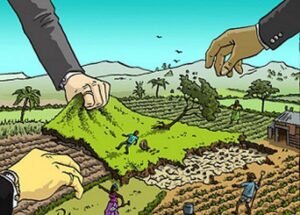Legal protection of the right to privacy in cyberspace
Written By: Khushi Gupta
Introduction
The right to privacy has been a topic of much discontent in Indian society. We have grown up thinking our privacy is a privilege and not a right. Its invasion happens almost every day, from our spying neighbors to our suspicious parents. Little do people know that this privacy is a right, not only that, it’s a right constitutionally protected. Moreover, the right to privacy has been accorded the same respect and importance as the right to life, which in legal terms would mean that right to privacy in life is an essential condition for the right to life. If a person feels their privacy is being invaded by their overbearing neighbors, they can approach the courts of law under article 21 of the Indian Constitution.
Need for privacy protection
The right to privacy has not always been a constitutional right or any right in the legal texts of India, its need arose with the rising incidents of invasion of privacy. Our honorable supreme court recognized the need for privacy as a right for the first time in the 1977 case of People’s Union for Civil Liberties (PUCL) versus Union of India (SC, 1997), however, the complete right was legally recognized in a landmark judgment by the nine-judge bench in KS Puttaswamy versus Union of India (SC, 2017).
Does the right to privacy cover cyberspace?
The right to privacy was mostly covered in the physical sense, but as technology grew, the need for it arose. Issues that came in cyberspace have been malicious spyware, hacking, fishing information, and this information was used for blackmailing, etc. privacy invasion of passwords and pins has also caused monetary harm to the users. Computers are a big source for cybercriminals. Most of our data is accessed from there and used to invade our privacy in its most advanced form.
Right to privacy in cyberspace also took note of various techniques like wiring and tapping in the case of Vinit Kumar versus Central Bureau of Investigations and Ors (Bom HC, 2019), wherein the Bombay High Court laid down the validity of invasion of privacy with things like wiring and taping phone calls for surveillance only and only fo the events which will fall under the category of ‘public emergency’ or ‘in the interest of public safety.
Laws against transgression of privacy
Apart from the constitutional right, the Indian laws have laid down a bunch of laws in separate legislation to prevent and punish the invasion caused by the right to privacy. The first legislation to target cybercrimes and invasion of rights in cyberspace was the information technology act of 2000. This legislation was very well-drafted with the descriptions of cybercrimes, and their penalties and punishments. This act’s section 66E is devoted to privacy invasion itself while other sections, such as Section 43, 66 covers hacking and Section 66 D cover cheating by impersonation.
The preventive measures ensure handling of personal data and sensitive information, these are spread across section 43 which mandates that the corporate bodies and intermediaries who possess, handle or collect any sensitive personal data shall maintain reasonable security practices and in case of failure they shall be liable to the person who is aggrieved by such misuse of data.
The government in fact took an even more progressive step in terms of sensitive information like our passwords and financial information and even health conditions and sexual orientation. They released a set of rules under the 2008 amendment of the information technology act, namely Information Technology (Reasonable Security Practices and Procedures and Sensitive Personal Data or Information) Rules, 2011. The rules even protect corporations from misusing information, they govern how the corporation collects, receives, possesses, stores, deals or handles information of its user. The government executed another legislation for privacy in cyberspace named the personal data protection bill, 2019, this has become the first data protection bill of India and is set to repeal section 43 of the IT Act. This bill went as far as to make a new authority called the Data Protection Authority of India which is supposed to ensure compliance to this new law and protect personal data.
International standing on privacy in cyberspace
In the U.S, in order to protect the interest of the children and their privacy who use the internet, the Federal Trade Commission has enacted The Children Internet Protection Act 2000, similarly, many countries have passed appropriate legislation to protect the intrusion on such personal data by people in their cyberspace. Social networking sites pose a whole lot of danger too, with people posting about their personal lives and submitting their personal information, also the source has access to personal chats of people too, thus, social media is a very big and relatively easier platform to access and invade the privacy of people.
A larger danger that has been faced outside has been social networks storing and later selling the personal information of people. Recently the large social networks were put on trial with mark Zuckerberg defending Facebook that had been alleged of major privacy invasion allegations that they have been selling user information to Google. The problem is that social networks are accessed by people of all ages, minors too who are less careful with their data and might share sensitive information too. This has been a very big challenge for all the countries out there and a uniform or constant protection and prevention from privacy invasion.
Conclusion
In today’s time, the internet serves our major needs, but if not contained and regulated, its access to our personal information can pose a great danger to our rights both nationally and internationally. The rights have been made to protect people and their sensitive information in an online environment. This platform is a whole lot of another world that is intricately made and it can be a very dangerous space because of its reach and population. The government needs to be more careful with its regulations and laws to respect the rights of people.
Previous Posts
Legal Aspects of wildlife Conservation in India – A critical appraisal
Creative commons: impact on Indian Copyright Law
Social security of the interstate migrant building and alternative construction employees in Kerala




